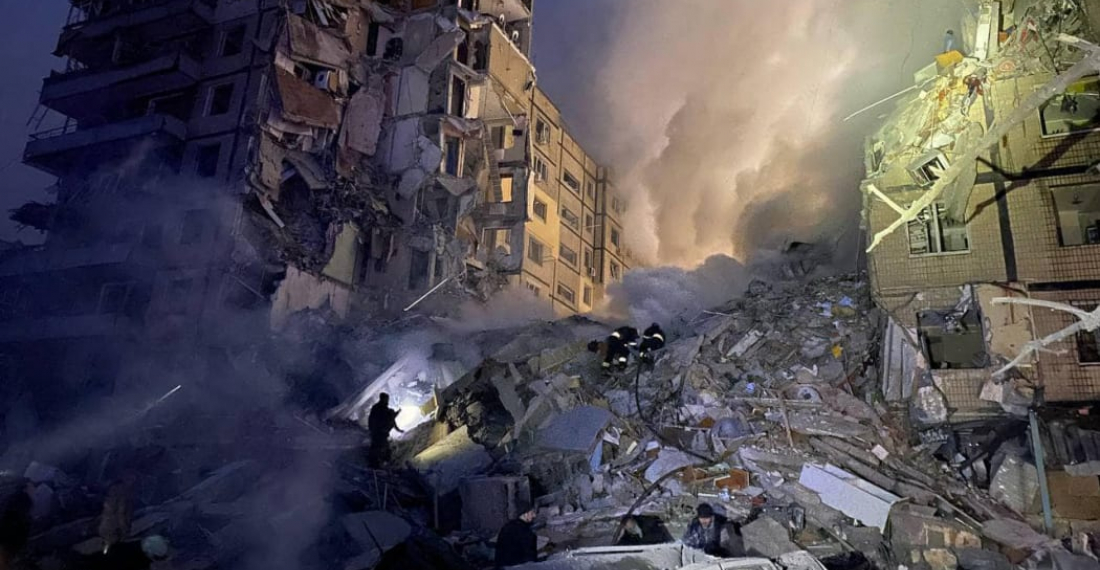A Russian missile strike on an apartment block in the eastern-central Ukrainian city of Dnipro on Saturday (14 January) has killed at least 40 people and wounded at least 76 people.
At least three children are among the wounded, and at least 14 children are among the injured. 26 people are still missing. This information comes from the Dnipropetrovsk Oblast Military Administration, reported by The Kyiv Independent, as of Monday evening (16 January).
72 apartments have been completely destroyed, and at least 230 have been damaged by the Kh-22 missile strike. The Ukrainian Armed Forces have said that they have “no firepower capable of shooting down this type of missile.”
Since the beginning of Russia's full-scale invasion of Ukraine in February last year, Moscow has repeatedly targeted critical infrastructure and civilian buildings in Ukraine, including power stations and apartment blocks. The drone and missile strikes - which have intensified since October - yield very little military advantage, and it is believed that such attacks are instead designed to terrorise the Ukrainian population.
Saturday's mass missile strike - the 10th since 10 October last year - comes as western powers debate whether to send heavy weaponry to the Ukrainian Armed Forces. The UK has recently committed to sending 14 Challenger tanks and 30 AS90 self-propelled guns.
Meanwhile, the German government is coming under increasing pressure from Poland and France to permit the re-export of their Leopard 2 tanks. Berlin has said they will make a final decision on this matter in the coming days.






